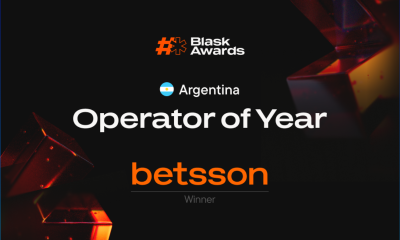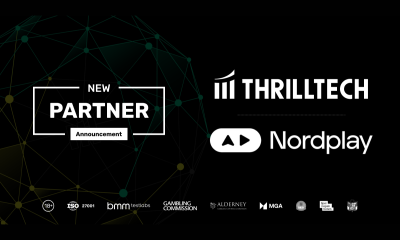Interviews
Roundtable: Marketing responsibly within a stricter environment

With emerging markets and countries taking a stricter approach to regulation in recent weeks, the subject of responsible marketing remains high on the agenda.
As an industry we understand the importance of being safe and responsible when engaging with end users with marketing material, but how exactly are operators and suppliers working together to ensure that best practices are maintained on a daily basis?
We asked Daniela Speranza, Head of Compliance at Betsson, Liesbeth Oost, Sustainability Manager at Aspire Global and Peter Christian Noer, Head of Country Managers at Soft2Bet, to discuss the tools and measures that are being utilised to improve the execution of responsible marketing.
Given the increased scrutiny around marketing across multiple regulated markets, do you think more can be done at platform level to support operators in their efforts to be more responsible?
Peter Christian Noer: Yes and no, we believe the responsibility falls on every operator, to ensure its marketing practices are kept in line with regulations. However, the more tools that can be provided the better. Especially in terms of targeting, so that operators can filter out under-age people easily.
It all comes down to data and what opportunities the platform provider has in place, if the system is kept secure and a trusted source of compliant traffic, then increased marketing budgets will be allocated to the platform.
Overall, it is in everyone’s interest that the platform can offer great protection, betting and data tools, although the responsibility of the allocated marketing budget should always fall on the operator.
Daniela Speranza: Yes, ideally platforms would be designed with responsible gambling considerations at their core, making it simpler for operators to achieve their objectives in this sense and comply with their ever-increasing obligations. For example, if platforms were to be tailored to cover market-specific legislation and advertising standards, I believe that it would be easier to protect the end-user, this of course being the ultimate goal of any responsible gambling requirements. The greatest thing about software is that it is plastic, and it can be moulded as we desire. This benefit must be used to our advantage as operators, always subject to the exigencies of the market competition, of course.
Furthermore, artificial intelligence and real-time alerting models can be integrated with platforms to provide efficient monitoring and analyses, enabling operators to interact proactively with players and ultimately providing end-users with the ability to make informed choices.
Liesbeth Oost: With AI and machine learning technology coming on in leaps and bounds in recent years, there’s a lot more that providers can do for operators in this space. For instance, in the world of affiliate marketing, an operator can have dozens of affiliates and the operator is responsible for ensuring each one remains compliant. When platform providers invest in developing the right solution, they have the ability to offer greater oversight on affiliates. This leaves the operator open to a lot less risk, which is a huge step forward, especially as stricter marketing rules are being enforced.
The industry has embraced a lot of different aspects of sustainability such as responsible marketing in the last two years. It’s easy to see how that is becoming more a part of the culture now, and this isn’t purely motivated by a fear of getting fined. Embracing compliance has led to better business, so it is no surprise that doing so with responsible marketing, for which Aspire is a strong advocate, has had a similar impact. It would be fantastic to see those efforts replicated in the wider industry, which could only serve to benefit operators.
What are the key differences between different jurisdictions approach to responsible marketing?
Liesbeth Oost: There are massive differences between jurisdictions. However, one steadily emerging trend is the markets that have regulated most recently seem to be the strictest. In the Netherlands, which has recently introduced its new regulatory framework, penalties on advertising violations result in non-eligibility to apply for a license.
Elsewhere, the US is very serious about each business’ role in the environment and its overall social governance. Embedding a culture of responsible gambling in a newly regulated country bodes well for the future of the market, promoting safer gaming experiences that players can enjoy.
Daniela Speranza: Whilst the intention of responsible marketing measures in different jurisdictions is more or less the same, namely, to reduce rates of gambling addiction and ramp up player protection efforts, especially for vulnerable groups such as problem gamblers and minors, there are key differences when it comes to how different jurisdictions approach it.
Certain measures in jurisdictions which do permit marketing are often similar regarding what can and cannot be included in communications regarding marketing material. For example, requiring ads to be socially responsible, not targeting minors or portraying sexual content.
At Betsson, we believe that advertising is vital for channelisation. Associations like the European Gaming & Betting Association’s (EGBA) are aiming to set long-term standards for gambling advertising content in Europe. Betsson is a member of EGBA and follows its Code of Conduct on Responsible Advertising for Online Gambling with a firm commitment on responsible gambling.
Peter Christian Noer: I wouldn’t say that there are many differences. Overall, they are quite similar with each jurisdiction having a unique trait. For example, some regulators will want a license number included in banners whereas others don’t mind.
The main rules to follow are quite consistent, such as not targeting minors, following good marketing practices, indicating terms associated with offers, offering full terms and including references to responsible gambling helplines or services.
Perhaps one of the biggest differences between jurisdictions is how many disclaimers need to be included. However, in my opinion, this doesn’t serve much of a purpose. In certain jurisdictions, regulators differentiate the number of disclaimers based on the market channel, as some allow for more to be included. However, this allows these regulators to bloat the requirements. I personally fail to see the point of including several disclaimer sentences in marketing messages, no one reads them, and, in any case, they are available online.
What sort of solutions does your company provide in supporting operators with their responsible marketing efforts?
Peter Christian Noer: As an operator ourselves, we mostly rely on the tools provided by partners at our disposal. In general, we maintain a strong level of communication with our provides and external partners.
We also normally work with partners that have operated within the industry before, since they have experience with special regulatory, technical and business requirements. More importantly they’ll also understand that our iGaming industry probably has more restrictions than others.
Since players’ trust is crucial in all markets, it’s also important that we as an operator market ourselves in a responsible and balanced manner. We also ensure that we stay within the guidelines and not go outside of them. Facing courts for marketing violations not only hurts the operator but the industry as a whole. We must acknowledge that we are an easy target and that we should all work collectively to improve the presentation of our offers so that they are clear and fair, otherwise future marketing restrictions will continue.
Daniela Speranza: Betsson understands the importance of identifying early signs of potential gambling-related harm and with this in mind, constantly invests in technology to develop automation and tools to help identify end-users at risk, such as late-night gamblers, chasing losses, heavy spenders, frequent depositors and limits being changed frequently. Our in-house built RG Prediction Tool with the help of various other reports, alerts and escalation processes is in use by a dedicated safer gambling team that is collating all data, analysing, and using the outcomes for interactions and interventions.
Betsson also ensures that marketing and advertising efforts are conducted in a socially responsible manner. Marketing and advertising communications are not aimed at, nor appeal to, underage persons (i.e., any age below the legal age for gambling in any jurisdiction where the communication is targeted) and carry appropriate warnings about underage gambling. By way of example, no logos or names of gambling products or services are found on products intended to be used or worn by underage persons. Advertising is not shown on any websites that children may frequent; YouTube and social media content are age-gated; celebrities or prolific persons are not used in marketing if they are under the age of 25, and persons that are shown, are shown to be gambling responsibly, for example no links to alcohol and gambling together.
The Compliance team is well integrated with the marketing teams and provides guidelines and training so that marketing is responsible and meets the various regulatory standards of moderation. Furthermore, the Compliance team oversees these functions to ensure that published marketing material follows internal guidelines and policies.
Liesbeth Oost: A huge challenge for most operators is how they monitor their affiliate partners to ensure they are always compliant. Overseeing every aspect of how multiple affiliates are performing is a massive task that cannot be done without the support of technology. To help with this, Aspire has partnered with Rightlander, which offers a range of solutions for affiliate compliance monitoring. Through its technology, we can identify affiliates bidding on client brand names, hijacking traffic and using their own tracking codes to intercept traffic.
Significant strides have been made in the world of machine learning and AI, which means that advanced platforms can actively optimise campaigns to a much greater extent and reduce the need for judgement calls on employees’ part. Most importantly for this issue, these tools can monitor a huge number of sites and flag any that may not be compliant in that market in an efficient manner.
Although our operating partners take care of their own marketing and relationships with affiliates, we are equipped to assist them in their operations and provide them with a service that ensures affiliates are not misrepresenting their brand.
Powered by WPeMatico
Interviews
Scaling innovation through the launch of Tequity Publishing
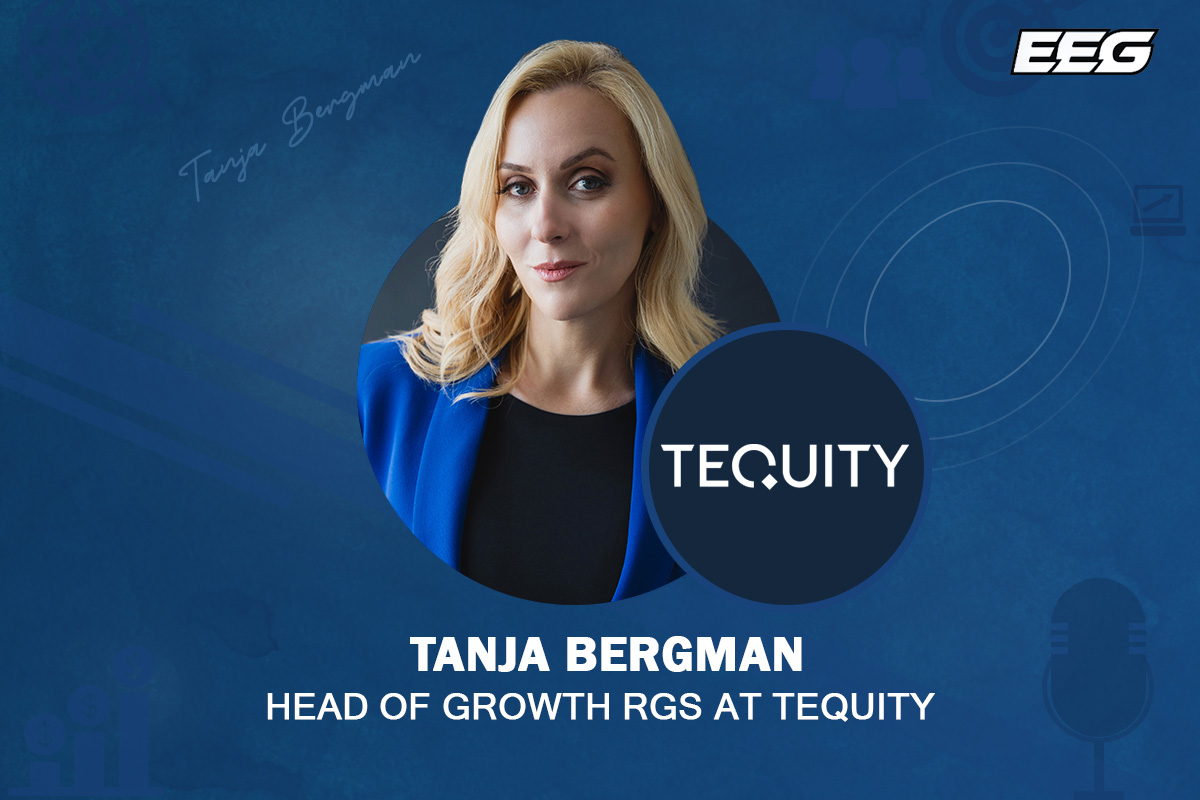
Following the announcement of its new publishing vertical and the successful debut of Royal Drop, we sat down with Tanja Bergman, Head of Growth RGS at Tequity, to discuss how this new arm is set to dismantle technical barriers for ambitious studios and why scalability is the new frontier for the ‘Burst Games’ genre.
Tequity has just officially launched its Publishing vertical. What was the primary catalyst behind this move?
The industry is currently in a fascinating place. There is no shortage of creative talent among studios, but there is a massive technical bottleneck. We have seen so many ambitious studios with incredible concepts – especially those moving beyond traditional slots – who have been getting bogged down in terms of getting those concepts out into the marketplace.
The catalyst for Tequity Publishing was simple. We wanted to break down those technical barriers. By handling the infrastructure, distribution, and compliance frameworks, we allow studios to do what they do best, which is build outstanding games. It’s about speed-to-market without compromising on the quality or the vision of their content.
The launch coincides with the release of Royal Drop. How does this game, and the partnership with Mirror Image Gaming and The Fortune Engine, showcase what Tequity Publishing is all about?
Royal Drop is the perfect proof of concept. It’s a collaboration that highlights three important pillars of modern game delivery. You have Mirror Image Gaming bringing that fresh, video-game-influenced Burst Games energy, The Fortune Engine provide the math tools and templates, and Tequity Publishing offers the global scale and distribution pathway.

It shows that when you remove operational friction, you can create a game-first experience that appeals to a new generation of players who want something more interactive than a standard 5×3 reel.
Tequity Publishing offers two models: RGSaaS and RGS-to-RGS. Can you walk us through the strategic benefits of each?
Flexibility is key, because no two studios are at the same stage of their journey. The RGSaaS model is our full-service offering. It’s designed for studios that want to focus 100% on the creative side. We provide the entire infrastructure and publishing framework and it is essentially a business-in-a-box for game creators.
The RGS-to-RGS model is a more streamlined, tech-first approach for studios that already have their own RGS but lack the distribution muscle. It allows them to plug into our growing operator and aggregator network instantly. Both models are built on the same philosophy: helping studios reach parts of the market they otherwise couldn’t access on their own.
You mentioned reaching new generations of players. How does this vertical specifically empower studios to innovate in ways they couldn’t before?
When a studio is concerned about how they are going to integrate with a multitude of different operators or how to navigate complex jurisdictional requirements, they tend to play it safe. They stick to what they know.
By taking that weight off their shoulders, we give them the opportunity to be brave. Studios like Mirror Image Gaming are pushing the boundaries of modern iGaming, taking influences from the video game world. This is exactly what the new generation of players is looking for. We provide the scalability so that these niche, innovative ideas can achieve mass-market impact.
It’s been a busy period for Tequity, following the success of your Originals series and the iBankroll partnership. How does the Publishing vertical fit into the broader Tequity roadmap for 2026?
It’s all part of becoming the ultimate technology partner for the gaming industry. Whether it’s our streamer-friendly Originals or our Bankroll-as-a-Service offering, the goal is to provide scalable, customisable solutions. Tequity Publishing is the natural evolution of that mission. We aren’t only providing the tools anymore, but also the pathway to the player. Looking ahead, you can expect a series of further launches through our three-way collaborations. We’re proving that the barrier to entry for innovation has never been lower.
Finally, for studios looking to scale quickly, what is your main message to them?
Don’t let technical noise drown out your creative signal. If you have a game concept that breaks the mould, you shouldn’t have to spend years building the distribution architecture to get it seen. That’s what we’re here for. We want to help you launch at a speed and scale that matches your ambition, so that you can make a significant splash in the industry.
The post Scaling innovation through the launch of Tequity Publishing appeared first on Eastern European Gaming | Global iGaming & Tech Intelligence Hub.
BetMGM
Breaking America with BetMGM
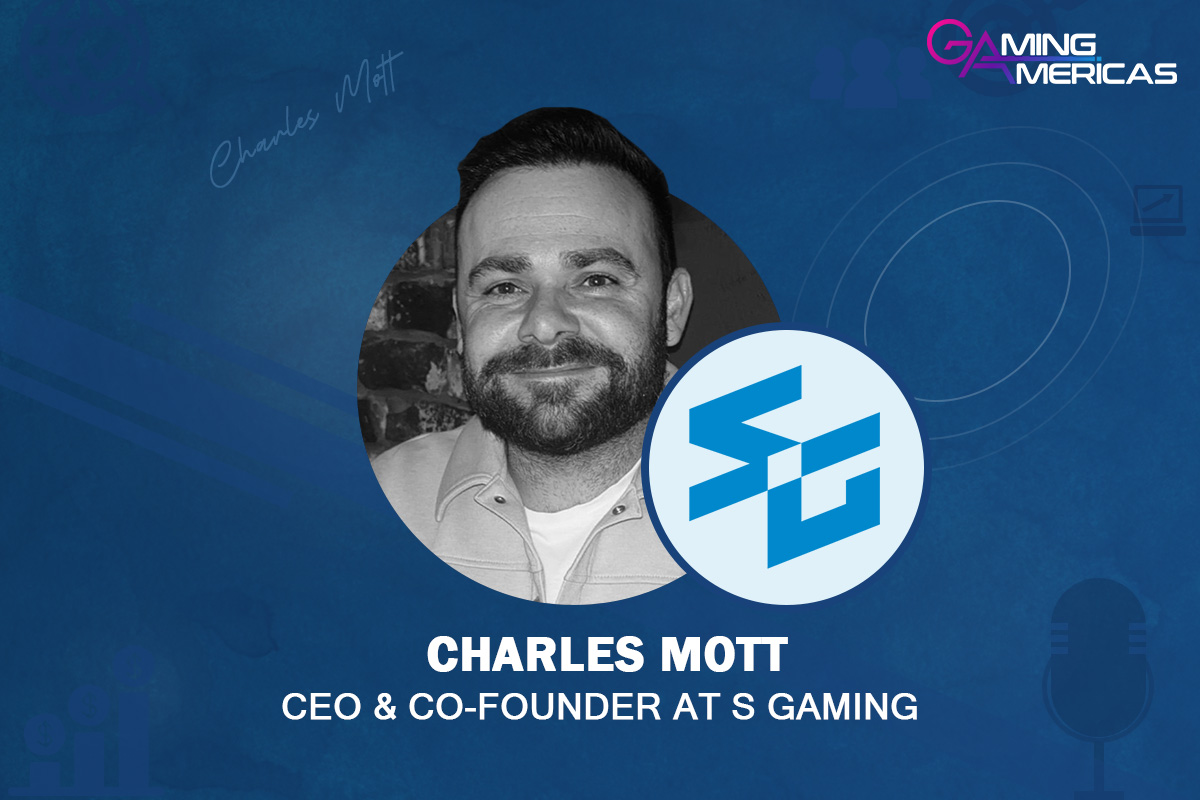
We speak to Charles Mott, CEO & Co-Founder at S Gaming, about the provider’s move into the US market with BetMGM and why more casual gameplay hits the mark with players stateside
Congratulations on your deal with BetMGM in the USA. Why is this such a milestone market launch for S Gaming?
The deal with BetMGM marks our hotly-anticipated launch in the US market, and sees our games go live to players in core regulated states such as New Jersey, Pennsylvania, West Virginia and Michigan. We see huge potential for our content in the North American market, and to make our debut with such a high-calibre operator is a testament to this. The US is still just finding its feet as a regulated online casino market, and our games, with their focus on sustainability and high entertainment, are the perfect fit for audiences who are used to land-based slots and are increasingly moving online. They are simple, easy to understand and play, and ultimately deliver tons of fun over longer playing sessions – just like the slot machines found on the floors of casinos in Las Vegas and beyond.
Just how important was it to go live with a tier-one operator like BetMGM? And how will the deal allow you to quickly build momentum in the US?
It’s mission critical. Going live with BetMGM allows us to build immediate trust with players, tap into a large and loyal playerbase, and simultaneously enter multiple regulated iCasino states at the same time. Now that we are up and running with BetMGM, we are turning our attention to striking partnerships with other operators active in the market. It’s pretty much the same blueprint that we’ve followed in our home market of the UK where we are now live with all but a handful of brands – something we have been able to achieve in a little over two years. We know the US is a slightly different market, but we are confident in our approach to game development and, as we gather more data on how US players interact with our games, will use this feedback loop to guide our product roadmap going forwards so that each title is better than the last and more suited to the preferences of US players.
You mentioned that your games are aimed at more casual players. How does this align with the preferences of US consumers?
If you walk onto the gaming floor of any Las Vegas casino, you’ll see row after row of slot machines. Increasingly, these machines are designed to keep players entertained for longer through gripping gameplay and regular wins. A lot of online slot content delivers high risk/high reward gameplay, where players can quickly clear through their balance as they hunt down big wins – wins that don’t land all that often. In a market where operators care deeply about retention and lifetime value, games that keep players spinning for longer really matter. Our approach to producing sustainable, fun games for players in the UK and Europe has allowed us to not only stand out but to engage players at scale, and we are confident players in the US, especially those who enjoy land-based slotting, will also be drawn to them at scale.
Has launching in the US been a major undertaking for S Gaming, or did it prove to be plain sailing for the most part?
When planning our move into the US market we identified two routes. We have our own remote game server, so we could build on that, secure licences in each state we wanted to enter, and then deploy our content directly with operators. The other option would be to work with a third-party RGS provider that already has the licences and integrations we needed. While the first option might sound like the best, in reality, especially for a smaller studio, the cost of and resources required for securing individual state licences can be prohibitive. So instead, we joined forces with Gaming Realms as they have the cutting-edge RGS and licences (in both the US and Europe) we were looking for. This means we simply need to build a US version of each game on the Gaming Realms RGS and can then deploy content with the wide range of operator partners they are connected with in regulated iCasino states across the US.
Tell us more about the initial run of games you’ve launched with BetMGM.
We’ve launched the partnership with Barnyard Bash Chicken Chase which will be followed by Triple 7 Jackpot in February and Cat and Mouse Collect in March – with one new game a month to follow as we build out our US portfolio. If players were to try just one of our games, it would be Barnyard Bash Chicken Chase. It gets players clucking as they spin the reels, collect Eggs and add them to the growing Nest – the more eggs collected, the bigger the Nest Egg becomes. Not only that, Eggs can randomly activate the matching colour-coded Nest Egg and award entry to the Chicken Trail feature, drop Egg-stra Free Spins or lay an Instant Prize.
But once they’ve tried it, they’ll definitely want to take Triple 7 Jackpot for a spin. This classic slot is dripping in neon action – the Triple 7 feature is always on screen but is locked until a spin lands three Bonus 777 symbols. This unlocks the feature with on spin awarded, giving players a shot at the 500x Jackpot prize. Free Spins are also up for grabs with seven Free Games awarded when three Scatters land in the base game.
Finally, Cat and Mouse Collect is a playful, feature-rich slot built around a simple but engaging Collect mechanic. Players pin the reels, collect up the cheeses and feed the hungry mice until they’re fit to burst. Green plates will serve up an instant prize, Blue will start the wild and wacky Cheese Chase and Red dishes out some feisty Free Spins. With regular feature triggers and plenty of on-reel interaction, it’s designed to keep players engaged from spin to spin without relying on extreme volatility.
What does success in the US look like for S Gaming over the next 12-18 months?
Success for us isn’t about one big hit, it’s about becoming a trusted, widely-distributed supplier in regulated iCasino states. Over the next year we want to significantly expand beyond BetMGM, roll out a steady pipeline of US-optimised titles and build the kind of player data and
operator relationships that let us grow sustainably. If players in New Jersey, Pennsylvania and Michigan are regularly choosing S Gaming titles as part of their core rotation, then we’ll know we’re really breaking into the market.
The post Breaking America with BetMGM appeared first on Americas iGaming & Sports Betting News.
3 Fortune Trees.
Kendoo interview: Can stability be the new innovation?
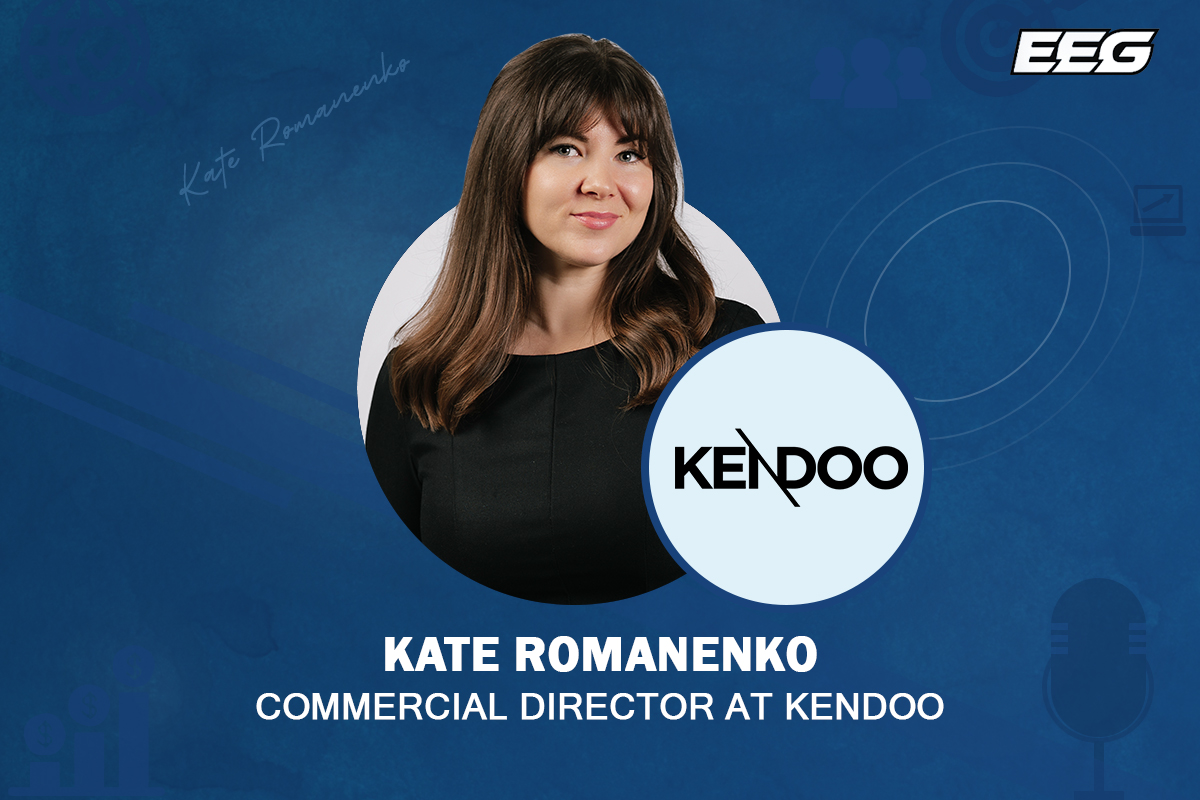
What innovation consists of within the slots industry is often debated. While there are often calls for more groundbreaking features to be introduced, the reality is that the progression of trusted and popular concepts is what drives the industry forward with new releases.
We caught up with the Kendoo’s Commercial Director, Kate Romanenko, to understand more on how long-term retention is often underpinned by controlled evolution of proven concepts, as shown in the company’s success over the past year.
In an industry driven by novelty, why do you think long-term consistency is becoming just as valuable as innovation?
In the competitive iGaming market, everyone is obsessed with “what’s next,” long-term consistency has become a signal of trust. Operators are increasingly cautious: they want games that perform predictably over time, not just those who grow only on launch. Controlled evolution, like we showed with 3 Pots and 4 Pots games, such as 3 Fortune Trees, 3 Gates of Pyramid, 4 Egypt Scarabs etc., proves that you can refresh mechanics and visuals without breaking what already works. Innovation still matters, but when it’s backed by performance data and retention, it becomes scalable, sustainable value rather than short-lived hype.
How does Kendoo ensure technical and gameplay stability across its growing portfolio, especially as it scales into new markets?
At Kendoo, we build on a select set of well-tested core mechanics, evolving them thoughtfully rather than introducing unproven systems. Each game reflects our research, experience, and deep understanding of player needs. This approach lets us expand into new markets without compromising reliability, delivering operators consistent performance and players a smooth, familiar experience they can trust.
What role does reliability play in building strong partnerships with aggregators and platforms?
Reliability is the foundation of trust with aggregators and platforms. When integrations are stable, launches are predictable, and games perform consistently, partners can scale with confidence. For Kendoo, reliability reduces operational friction on their side, fewer incidents, faster rollouts, and clearer performance expectations. Over time, this turns a supplier relationship into a long-term partnership, where growth is planned together rather than driven by constant risk around new releases.
Do you think players are beginning to value dependable, well-balanced games over constant experimentation?
Players enjoy novelty, but they return to games that feel fair, familiar, and well-balanced. Constant experimentation can create friction, while dependable mechanics build confidence and habit. That’s why evolved formats with proven performance tend to retain better: players know what to expect, and that reliability turns curiosity into long-term engagement. For example, taking mechanics like Pots, which originated in land-based casinos, and successfully adapting them for online play.
Can you point to a Kendoo title that’s become a steady performer over time and what that tells you about what players really value?
A clear example is 3 Fortune Trees. Since launch, it has consistently driven strong retention and engagement across markets, with an average of 500 bets per player, which is excellent. The game demonstrates that players value Pots mechanics and reliable, well-balanced gameplay over flashy, one-off features. Its engaging mechanics, popular theme, and premium art and animation all come together to create a game that players love to play.
The post Kendoo interview: Can stability be the new innovation? appeared first on Eastern European Gaming | Global iGaming & Tech Intelligence Hub.
-

 BetPlay5 days ago
BetPlay5 days agoBlask Awards 2025: Betano, Caliente, BetPlay, Betsson and others define Latin America’s iGaming landscape
-

 iGaming5 days ago
iGaming5 days agoMajestic Claws Hold & Hit leaps into Spinomenal’s slots portfolio
-

 Canada5 days ago
Canada5 days agoComeOn Launches New Marketing Campaign in Ontario
-

 Latest News5 days ago
Latest News5 days agoThrillTech partners with Nordplay Group to launch ThrillPots across Nordic-facing casino brands
-

 DEGEN Studios5 days ago
DEGEN Studios5 days agoDEGEN Studios brings Wild West chaos to the reels with Sunset Showdown
-

 bingo halls4 days ago
bingo halls4 days agoBingo Halls and Casinos in Colombia Increased Their Contributions to Healthcare System by 9.3% in 2025
-

 Brightstar Lottery PLC4 days ago
Brightstar Lottery PLC4 days agoBrightstar Lottery Delivers Industry-Leading Sales Force Automation Solution to Ontario Lottery and Gaming Corporation
-

 Boomerang Partners5 days ago
Boomerang Partners5 days agoBoomerang Partners highlights from iGB Affiliate Barcelona 2026: The Sports Marketing & Betting Calendar 2026 presentation, sports activations and the ‘Best Live Event Marketing Campaign’ award




